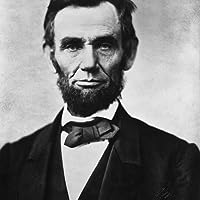Industry Quotes
Quotes tagged as "industry"
Showing 1-30 of 276

“The most preposterous notion that Homo sapiens has ever dreamed up is that the Lord God of Creation, Shaper and Ruler of all the Universes, wants the saccharine adoration of His creatures, can be swayed by their prayers, and becomes petulant if He does not receive this flattery. Yet this absurd fantasy, without a shred of evidence to bolster it, pays all the expenses of the oldest, largest, and least productive industry in all history.”
― Time Enough for Love
― Time Enough for Love
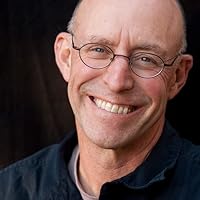
“Were the walls of our meat industry to become transparent, literally or even figuratively, we would not long continue to raise, kill, and eat animals the way we do.”
― The Omnivore's Dilemma: A Natural History of Four Meals
― The Omnivore's Dilemma: A Natural History of Four Meals
“Your comfort zone is a place where you keep yourself in a self-illusion and nothing can grow there but your potentiality can grow only when you can think and grow out of that zone.”
―
―

“Eating is an agricultural act,' as Wendell Berry famously said. It is also an ecological act, and a political act, too. Though much has been done to obscure this simple fact, how and what we eat determines to a great extent the use we make of the world - and what is to become of it. To eat with a fuller consciousness of all that is at stake might sound like a burden, but in practice few things in life can afford quite as much satisfaction. By comparison, the pleasures of eating industrially, which is to say eating in ignorance, are fleeting. Many people today seem erfectly content eating at the end of an industrial food chain, without a thought in the world; this book is probably not for them.”
― The Omnivore's Dilemma: A Natural History of Four Meals
― The Omnivore's Dilemma: A Natural History of Four Meals
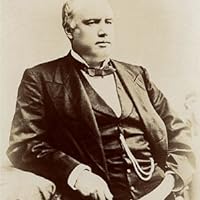
“Some Christian lawyers—some eminent and stupid judges—have said and still say, that the Ten Commandments are the foundation of all law.
Nothing could be more absurd. Long before these commandments were given there were codes of laws in India and Egypt—laws against murder, perjury, larceny, adultery and fraud. Such laws are as old as human society; as old as the love of life; as old as industry; as the idea of prosperity; as old as human love.
All of the Ten Commandments that are good were old; all that were new are foolish. If Jehovah had been civilized he would have left out the commandment about keeping the Sabbath, and in its place would have said: 'Thou shalt not enslave thy fellow-men.' He would have omitted the one about swearing, and said: 'The man shall have but one wife, and the woman but one husband.' He would have left out the one about graven images, and in its stead would have said: 'Thou shalt not wage wars of extermination, and thou shalt not unsheathe the sword except in self-defence.'
If Jehovah had been civilized, how much grander the Ten Commandments would have been.
All that we call progress—the enfranchisement of man, of labor, the substitution of imprisonment for death, of fine for imprisonment, the destruction of polygamy, the establishing of free speech, of the rights of conscience; in short, all that has tended to the development and civilization of man; all the results of investigation, observation, experience and free thought; all that man has accomplished for the benefit of man since the close of the Dark Ages—has been done in spite of the Old Testament.”
― About The Holy Bible
Nothing could be more absurd. Long before these commandments were given there were codes of laws in India and Egypt—laws against murder, perjury, larceny, adultery and fraud. Such laws are as old as human society; as old as the love of life; as old as industry; as the idea of prosperity; as old as human love.
All of the Ten Commandments that are good were old; all that were new are foolish. If Jehovah had been civilized he would have left out the commandment about keeping the Sabbath, and in its place would have said: 'Thou shalt not enslave thy fellow-men.' He would have omitted the one about swearing, and said: 'The man shall have but one wife, and the woman but one husband.' He would have left out the one about graven images, and in its stead would have said: 'Thou shalt not wage wars of extermination, and thou shalt not unsheathe the sword except in self-defence.'
If Jehovah had been civilized, how much grander the Ten Commandments would have been.
All that we call progress—the enfranchisement of man, of labor, the substitution of imprisonment for death, of fine for imprisonment, the destruction of polygamy, the establishing of free speech, of the rights of conscience; in short, all that has tended to the development and civilization of man; all the results of investigation, observation, experience and free thought; all that man has accomplished for the benefit of man since the close of the Dark Ages—has been done in spite of the Old Testament.”
― About The Holy Bible

“We are being made aware that the organization of society on the principle of private profit, as well as public destruction, is leading both to the deformation of humanity by unregulated industrialism, and to the exhaustion of natural resources, and that a good deal of our material progress is a progress for which succeeding generations may have to pay dearly.”
―
―
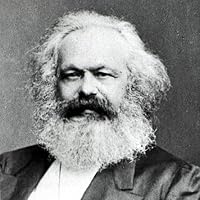
“And here it becomes evident that the bourgeoisie is unfit any longer to be the ruling class in society and to impose its conditions of existence upon society as an over-riding law. It is unfit to rule because it is incompetent to assure an existence to its slave within his slavery, because it cannot help letting him sink into such a state that it has to feed him instead of being fed by him. Society can no longer live under this bourgeoisie; in other words, its existence is no longer compatible with society.
The essential condition for the existence, and for the sway of the bourgeois class, is the formation and augmentation of capital; the condition for capital is wage-labor. Wage-labor rests exclusively on competition between the laborers. The advance of industry, whose involuntary promoter is the bourgeoisie, replaces the isolation of the laborers, due to competition, by their revolutionary combination, due to association. The development of modern industry, therefore, cuts from under its feet the very foundation on which the bourgeoisie produces and appropriates products. What the bourgeoisie therefore produces, above all, are its own grave diggers. Its fall and the victory of the proletariat are equally inevitable.”
― The Communist Manifesto
The essential condition for the existence, and for the sway of the bourgeois class, is the formation and augmentation of capital; the condition for capital is wage-labor. Wage-labor rests exclusively on competition between the laborers. The advance of industry, whose involuntary promoter is the bourgeoisie, replaces the isolation of the laborers, due to competition, by their revolutionary combination, due to association. The development of modern industry, therefore, cuts from under its feet the very foundation on which the bourgeoisie produces and appropriates products. What the bourgeoisie therefore produces, above all, are its own grave diggers. Its fall and the victory of the proletariat are equally inevitable.”
― The Communist Manifesto

“Much of our food system depends on our not knowing much about it, beyond the price disclosed by the checkout scanner; cheapness and ignorance are mutually reinforcing. And it's a short way from not knowing who's at the other end of your food chain to not caring–to the carelessness of both producers and consumers that characterizes our economy today. Of course, the global economy couldn't very well function without this wall of ignorance and the indifference it breeds. This is why the American food industry and its international counterparts fight to keep their products from telling even the simplest stories–"dolphin safe," "humanely slaughtered," etc.–about how they were produced. The more knowledge people have about the way their food is produced, the more likely it is that their values–and not just "value"–will inform their purchasing decisions.”
― The Omnivore's Dilemma: A Natural History of Four Meals
― The Omnivore's Dilemma: A Natural History of Four Meals
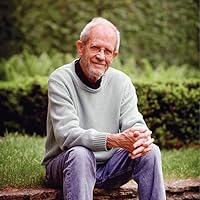
“There are cities that get by on their good looks, offer climate and scenery, views of mountains or oceans, rockbound or with palm trees; and there are cities like Detroit that have to work for a living, whose reason for being might be geographical but whose growth is based on industry, jobs. Detroit has its natural attractions: lakes all over the place, an abundance of trees and four distinct seasons for those who like variety in their weather, everything but hurricanes and earth-quakes. But it’s never been the kind of city people visit and fall in love with because of its charm or think, gee, wouldn’t this be a nice place to live.”
―
―

“When a man becomes a Christian, he becomes industrious, trustworthy and prosperous. Now, if that man when he gets all he can and saves all he can, does not give all he can, I have more hope for Judas Iscariot than for that man!”
―
―

“And did those feet in ancient time
Walk upon England's mountains green?
And was the holy Lamb of God
On England's pleasant pastures seen?
And did the Countenance Divine
Shine forth upon our clouded hills?
And was Jerusalem builded here,
Among these dark Satanic Mills?
Bring me my Bow of burning gold:
Bring me my Arrows of desire:
Bring me my Spear: O clouds unfold!
Bring me my Chariot of fire!
I will not cease from Mental Fight,
Nor shall my Sword sleep in my hand,
Till we have built Jerusalem
In England's green & pleasant Land.”
― Milton: A Poem
Walk upon England's mountains green?
And was the holy Lamb of God
On England's pleasant pastures seen?
And did the Countenance Divine
Shine forth upon our clouded hills?
And was Jerusalem builded here,
Among these dark Satanic Mills?
Bring me my Bow of burning gold:
Bring me my Arrows of desire:
Bring me my Spear: O clouds unfold!
Bring me my Chariot of fire!
I will not cease from Mental Fight,
Nor shall my Sword sleep in my hand,
Till we have built Jerusalem
In England's green & pleasant Land.”
― Milton: A Poem
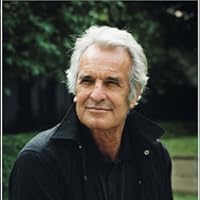
“We are not encouraged, on a daily basis, to pay careful attention to the animals we eat. On the contrary, the meat, dairy, and egg industries all actively encourage us to give thought to our own immediate interest (taste, for example, or cheap food) but not to the real suffering involved. They do so by deliberately withholding information and by cynically presenting us with idealized images of happy animals in beautiful landscapes, scenes of bucolic happiness that do not correspond to anything in the real world. The animals involved suffer agony because of our ignorance. The least we owe them is to lessen that ignorance.”
― The Face on Your Plate: The Truth About Food
― The Face on Your Plate: The Truth About Food

“If you use a philosophy education well, you can get your foot in the door of any industry you please. Industries are like the blossoms on a tree while philosophy is the trunk - it holds the tree together, but it often goes unnoticed.”
― Killosophy
― Killosophy
“Whomsoever controls the volume of money in any country is absolute master of all industry and commerce and when you realize that the entire system is very easily controlled, one way or another, by a few powerful men at the top, you will not have to be told how periods of inflation and depression originate.”
―
―

“What is most troubling, and sad, about industrial eating is how thoroughly it obscures all these relationships and connections. To go from the chicken (Gallus gallus) to the Chicken McNugget is to leave this world in a journey of forgetting that could hardly be more costly, not only in terms of the animal's pain but in our pleasure, too. But forgetting, or not knowing in the first place, is what the industrial food chain is all about, the principal reason it is so opaque, for if we could see what lies on the far side of the increasingly high walls of our industrial agriculture, we would surely change the way we eat.”
― The Omnivore's Dilemma: A Natural History of Four Meals
― The Omnivore's Dilemma: A Natural History of Four Meals

“My biggest objection to Marxism has been the presumption that industry should exist at all. I think the unstoppable juggernaut which is global warming demonstrates that processing natural materials on an industrial scale is a suicidal practice.”
―
―
“Much may be done in those little shreds and patches of time which every day produces, and which most men throw away.”
―
―

“If you agree to work for us, half the time you won't know the purpose of your duties . . . and when we do explain, we might not be telling the truth. But that's the real world, folks . . .”
― Trapped
― Trapped

“Robots are like Mars: they need
girls.
Boys won't do;
the memesoup is all wrong. They stomp
when they should kiss
and they're none too keen
on having things shoved inside them...
It's not a robot
until you put a girl inside. Sometimes
I feel like that.
A junkyard
the Company forgot to put a girl in.”
― The Melancholy of Mechagirl
girls.
Boys won't do;
the memesoup is all wrong. They stomp
when they should kiss
and they're none too keen
on having things shoved inside them...
It's not a robot
until you put a girl inside. Sometimes
I feel like that.
A junkyard
the Company forgot to put a girl in.”
― The Melancholy of Mechagirl

“In her mind the U.S. was nothing more and nothing less than a país overrun by gangsters, putas, and no-accounts. Its cities swarmed with machines and industry, as thick with sinvergüencería as Santo Domingo was with heat, a cuco shod in iron, exhaling fumes, with the glittering promise of coin deep in the cold lightless shaft of its eyes.”
― The Brief Wondrous Life of Oscar Wao
― The Brief Wondrous Life of Oscar Wao
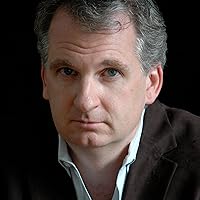
“How could a large land empire thrive and dominate in the modern world without reliable access to world markets and without much recourse to naval power?
Stalin and Hitler had arrived at the same basic answer to this fundamental question. The state must be large in territory and self-sufficient in economics, with a balance between industry and agriculture that supported a hardily conformist and ideologically motivated citizenry capable of fulfilling historical prophecies - either Stalinist internal industrialization or Nazi colonial agrarianism. Both Hitler and Stalin aimed at imperial autarky, within a large land empire well supplies in food, raw materials, and mineral resources. Both understood the flash appeal of modern materials: Stalin had named himself after steel, and Hitler paid special attention to is production. Yet both Stalin and Hitler understood agriculture as a key element in the completion of their revolutions. Both believed that their systems would prove their superiority to decadent capitalism, and guarantee independence from the rest of the world, by the production of food.
p. 158”
― Bloodlands: Europe Between Hitler and Stalin
Stalin and Hitler had arrived at the same basic answer to this fundamental question. The state must be large in territory and self-sufficient in economics, with a balance between industry and agriculture that supported a hardily conformist and ideologically motivated citizenry capable of fulfilling historical prophecies - either Stalinist internal industrialization or Nazi colonial agrarianism. Both Hitler and Stalin aimed at imperial autarky, within a large land empire well supplies in food, raw materials, and mineral resources. Both understood the flash appeal of modern materials: Stalin had named himself after steel, and Hitler paid special attention to is production. Yet both Stalin and Hitler understood agriculture as a key element in the completion of their revolutions. Both believed that their systems would prove their superiority to decadent capitalism, and guarantee independence from the rest of the world, by the production of food.
p. 158”
― Bloodlands: Europe Between Hitler and Stalin

“So this is what commodity corn can do to a cow: industrialize the miracle of nature that is a ruminant, taking this sunlight- and prairie grass-powered organism and turning it into the last thing we need: another fossil fuel machine. This one, however, is able to suffer. ”
― The Omnivore's Dilemma: A Natural History of Four Meals
― The Omnivore's Dilemma: A Natural History of Four Meals

“God's will has to be done, in unifying people and companies to get that gas line built, so pray for that.”
―
―

“Miss Millick wondered just what had happened to Mr. Wran. He kept making the strangest remarks when she took dictation. Just this morning he had quickly turned around and asked, "Have you ever seen a ghost, Miss Millick?" And she had tittered nervously and replied, "When I was a girl there was a thing in white that used to come out of the closet in the attic bedroom when you slept there, and moan. Of course it was just my imagination. I was frightened of lots of things." And he had said, "I don't mean that traditional kind of ghost. I mean a ghost from the world today, with the soot of the factories in its face and the pounding of machinery in its soul. The kind that would haunt coal yards and slip around at night through deserted office buildings like this one. A real ghost. Not something out of books." And she hadn't known what to say. ("Smoke Ghost")”
― American Fantastic Tales: Terror and the Uncanny from the 1940s to Now
― American Fantastic Tales: Terror and the Uncanny from the 1940s to Now

“Once we acknowledge the complex nature of the world, the notion of dissecting and reassembling entire industry constituents like Lego is illusory.”
― Disrupt With Impact: Achieve Business Success in an Unpredictable World
― Disrupt With Impact: Achieve Business Success in an Unpredictable World
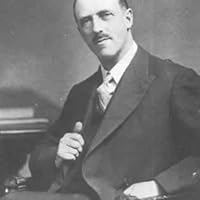
“And as we stood there, a curious thing happened: a kind of window opened in the rain, just as if a cloud had been hitched aside like a curtain, and in the space between we saw a landscape that took our breath away. The high ground along which the road ran fell away through a black, woody belt, and beyond it, for more miles than you can imagine, lay the whole basin of the Black Country, clear, amazingly clear, with innumerable smokestacks rising out of it like the merchant shipping of the world laid up in an estuary at low tide, each chimney flying a great pennant of smoke that blew away eastward by the wind, and the whole scene bleared by the light of a sulphurous sunset. No one need ever tell me again that the Black Country isn't beautiful. In all Shrophire and Radnor we'd seen nothing to touch it for vastness and savagery. And then this apocalyptic light! It was like a landscape of the end of the world, and, curiously enough, though men had built the chimneys and fired the furnaces that fed the smoke, you felt that the magnificence of the scene owed nothing to them. Its beauty was singularly inhuman and its terror – for it was terrible, you know – elemental. It made me wonder why you people who were born and bred there ever write about anything else.”
― Cold Harbour
― Cold Harbour

“A company is a moral imbecile. It has no sense of right or wrong. Any restraints have to come from the outside, from laws and customs which forbid it from doing certain things of which we disapprove. But it is a restraint which reduces profits. Which is why all companies will strain forever to break the bounds of the law, to act unfettered in their pursuit of advantage. That is the only way they can survive because the more powerful will devour the weak. And because it is in the nature of capital, which is wild, longs to be free and chafes at each and every restriction imposed on it.”
― Stone's Fall
― Stone's Fall
All Quotes
|
My Quotes
|
Add A Quote
Browse By Tag
- Love Quotes 97.5k
- Life Quotes 76k
- Inspirational Quotes 73k
- Humor Quotes 44k
- Philosophy Quotes 29.5k
- Inspirational Quotes Quotes 27k
- God Quotes 26k
- Truth Quotes 23.5k
- Wisdom Quotes 23.5k
- Romance Quotes 23k
- Poetry Quotes 22k
- Death Quotes 20k
- Happiness Quotes 18.5k
- Life Lessons Quotes 18.5k
- Hope Quotes 18k
- Faith Quotes 18k
- Quotes Quotes 16.5k
- Inspiration Quotes 16.5k
- Spirituality Quotes 15k
- Religion Quotes 15k
- Motivational Quotes 15k
- Writing Quotes 15k
- Relationships Quotes 14.5k
- Life Quotes Quotes 14k
- Love Quotes Quotes 14k
- Success Quotes 13.5k
- Time Quotes 12.5k
- Motivation Quotes 12k
- Science Quotes 11.5k
- Motivational Quotes Quotes 11.5k

